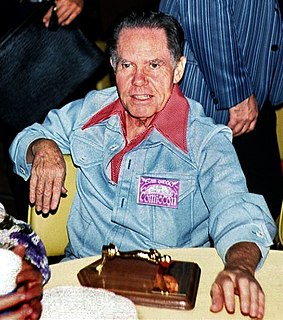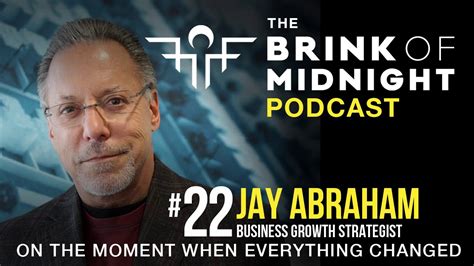A Quote by William Safire
To communicate, put your words in order; give them a purpose; use them to persuade, to instruct, to discover, to seduce.
Related Quotes
If you want to "get in touch with your feelings," fine, talk to yourself. We all do. But if you want to communicate with another thinking human being, get in touch with your thoughts. Put them in order, give them a purpose, use them to persuade, to instruct, to discover, to seduce. The secret way to do this is to write it down, and then cut out the confusing parts.
Be careful not to be the first to put your hands in the dish. What you cannot hold in your hands you must put on your plate. Also it is a great breach of etiquette when your fingers are dirty and greasy, to bring them to your mouth in order to lick them, or to clean them on your jacket. It would be more decent to use the tablecloth.
Whenever I mentor people and help them discover their purpose, I always encourage them to start the process by discovering their strengths, not exploring their shortcomings. Why? Because people's purpose in life is always connected to their giftedness. It always works that way. You are not called to do something that you have no talent for. You will discover your purpose by finding and remaining in your strength zone.
In your relationship with God there are also times when you want to say things and you're trying to find the words to express them. In a human relationship sometimes you struggle for words and you've got to do it, but in a relationship with God he can actually give you a language which enables you to communicate. In a relationship with God you feel things and you want to express them and you're not limited by human language. You can express what you really feel in your heart, through a language that he gives you, and that helps you to communicate with God.
If you go into a bank or a shop and you want them to believe that you're going to shoot them, that's an acting exercise. If you want to turn to someone else who's as tooled up as you are and persuade them to put their knife down because you'll use your knife, that's an acting exercise. Nine out of 10 delinquents are frustrated actors.
I want you to understand the words. I want you taste the words. I want you to love the words. Because the words are important. But they're only words. You leave them on the paper and you take the thoughts and put them into your mind and then you as an actor recreate them, as if the thoughts had suddenly occurred to you.
Make your copy straightforward to read, understand and use. Use easy words; those that are used for everyday speech. Use phrases that are not too imprecise and very understandable. Do not be too stuffy; remove pompous words and substitute them with plain words. Minimize complicated gimmicks and constructions. If you can't give the data directly and briefly, you must consider writing the copy again.
We ought to be able to persuade on opposite sides of a question; as also we ought in the case of arguing by syllogism: not that we should practice both, for it is not right to persuade to what is bad; but in order that the bearing of the case may not escape us, and that when another makes an unfair use of these reasonings, we may be able to solve them.


































